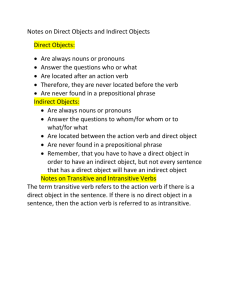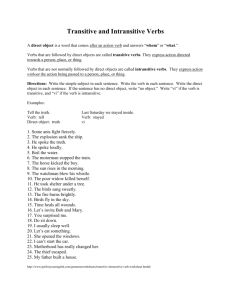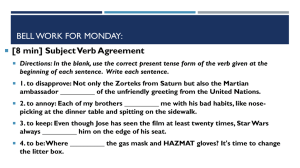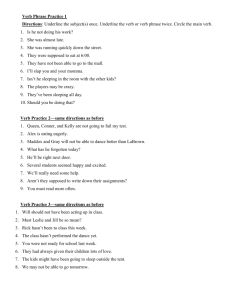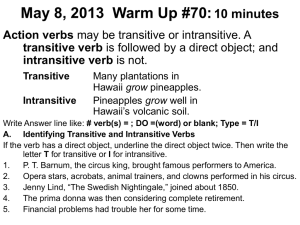Simple Test for Transitive Verbs
advertisement
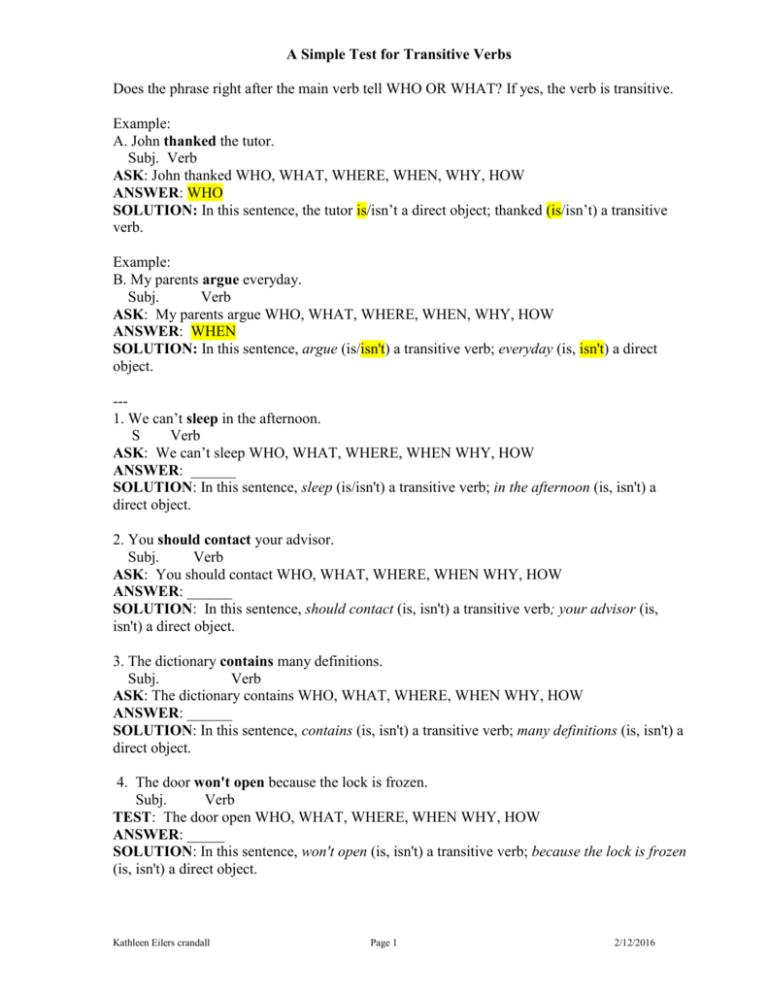
A Simple Test for Transitive Verbs Does the phrase right after the main verb tell WHO OR WHAT? If yes, the verb is transitive. Example: A. John thanked the tutor. Subj. Verb ASK: John thanked WHO, WHAT, WHERE, WHEN, WHY, HOW ANSWER: WHO SOLUTION: In this sentence, the tutor is/isn’t a direct object; thanked (is/isn’t) a transitive verb. Example: B. My parents argue everyday. Subj. Verb ASK: My parents argue WHO, WHAT, WHERE, WHEN, WHY, HOW ANSWER: WHEN SOLUTION: In this sentence, argue (is/isn't) a transitive verb; everyday (is, isn't) a direct object. --1. We can’t sleep in the afternoon. S Verb ASK: We can’t sleep WHO, WHAT, WHERE, WHEN WHY, HOW ANSWER: ______ SOLUTION: In this sentence, sleep (is/isn't) a transitive verb; in the afternoon (is, isn't) a direct object. 2. You should contact your advisor. Subj. Verb ASK: You should contact WHO, WHAT, WHERE, WHEN WHY, HOW ANSWER: ______ SOLUTION: In this sentence, should contact (is, isn't) a transitive verb; your advisor (is, isn't) a direct object. 3. The dictionary contains many definitions. Subj. Verb ASK: The dictionary contains WHO, WHAT, WHERE, WHEN WHY, HOW ANSWER: ______ SOLUTION: In this sentence, contains (is, isn't) a transitive verb; many definitions (is, isn't) a direct object. 4. The door won't open because the lock is frozen. Subj. Verb TEST: The door open WHO, WHAT, WHERE, WHEN WHY, HOW ANSWER: _____ SOLUTION: In this sentence, won't open (is, isn't) a transitive verb; because the lock is frozen (is, isn't) a direct object. Kathleen Eilers crandall Page 1 2/12/2016

